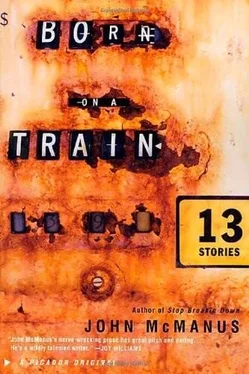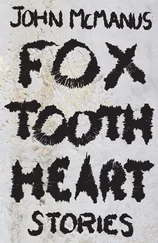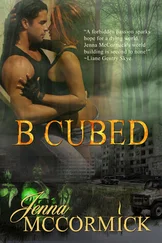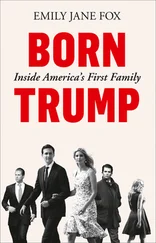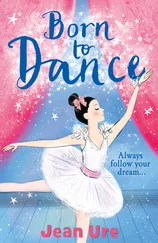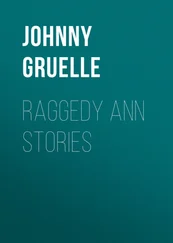Brennan’s golden retreiver has a litter of puppies. As I was stroking their supple coats of fuzz I began to think of your beautiful head. Brennan went into his toolshed and emerged with a mallard corpse, its broken neck as flaccid as a tail. He was training the puppies to fetch. They ran to the duck. They disemboweled it and it died another death and catalyzed my thoughts of you.
I had tried to slice the skin of my palm with that letter, but Leila’s stationery was too thick. I ripped it into halves until I held a stack too big to tear and walked it to the Dumpster like all the rest. It’s hard to blame me; I was young, just a boy, really, and I was drinking a lot even then, didn’t see the big deal in right from wrong. I liked to say things like, You can’t fight fate, but I didn’t mean it; it was just an interjection.
Every minute of every day, I said.
You’re the only two people I’ll ever care about.
You’re only twenty-four, I said.
I’m too old to bother with new people. It makes me tired.
It made me tired too.
I don’t think she’s coming back, he said, and I nodded. It was the conclusion I probably would have drawn as well. I thought you were cute, he said. It was why I sat down to have lunch with you that first time, back in seventh grade.
That was thirteen years ago, that day in school. Suddenly my legs were heavy, mortarlike. I remembered the time I’d cut a wire in my mother’s red sedan so she wouldn’t go to work, so she’d stay home with me, but then I learned she’d been laid off the day before anyway and it was a very expensive wire. Everyone was sorry.
Patrick scooted himself around the table. He wasn’t perfect either. Take those baby birds, the dead ones that he’d stomped on — he wished they were alive. He wanted to have killed them. They didn’t bleed the way that houses did when they decayed. I held on to my chair because I’d dreamed of this for so long. My heart beat wildly. He smelled like musk. I imagined that I had sliced him full of scars with our biggest carving knife, that the gashes on his chest formed words in Leila’s penmanship. It was dark outside, but on the west coast the sun was only red and setting. He deserves it anyhow, I’d said about the letters, if he won’t hook up with me. He sat around high or in a k-hole all the time. You can mold unhappy people how you choose. You can’t recall what happened to the summer. Boys on the rainy street still look the same, but they’re shut down for the season, like waterslides. Patrick was waiting for me to lead, like we were equal; he smelled like I did. Whiskey, dirty fabric. When I pushed him away, he whispered he was sorry. I shook my head and pulled him to the couch and held him tight and horizontal. I cried so that he couldn’t see it, couldn’t hear me, so that any touch of tears was just my tongue’s tip on the zenith of his cheekbone.
The alcohol made us brave that night. We walked right into the downstairs apartment and stole a case of beer from the refrigerator, and we drank for two more hours, just staring at each other. The next day at noon Patrick sipped a steaming cup of JFG and glanced around uneasily, like rats might munch on his toes, like he was cold not from the outdoor frost but from me. I don’t want leaves to fall from the trees yet, he said.
Of course you do, I told him.
It’s just October seventh. It’s so early.
This was the day it happened. The trees were bushy, and then the trees were bare; their waste made falling whirlwinds everywhere, up and down the street. Cars had to turn their windshield wipers on to see past all the fallen leaves. We would go back to the pawn shop to sell my bike, his fishing rods, his drum set. We’d drive this time.
But that’s what October is, I said. I was jealous of him. Those were the kinds of thoughts I wanted for myself.
I was about to tell him about the letters when he looked into my eyes and stopped me. I don’t think I can ever be with you, he said. It seemed to make him sad. I asked why not, although I knew each answer possible — not pretty enough, not a good kisser, not a girl.
My life isn’t going anywhere, he said. I’m not good for you.
I shook my head.
I smell like you this morning, he said, his voice hoarse, and he changed into a T-shirt that was draped across the space heater.
We had some beers left over from the case we’d stolen, and I opened one for each of us. I wanted to speak, but my throat decided not to.
I could never scream at you the way I scream at Leila, Patrick said. And the way she screams at me, the way we scream at each other. I like you too much.
We ate beef jerky at the table, leaving only beer and rotten mushrooms in the refrigerator. I spun the glass ewer, whose Queen Anne’s lace had now been dead for quite a while. They were hardly flowers anymore, except for the stalks that looked the same as always, diffracted halfway down the vase by old water. I shivered, because the house was cold without our gas turned on. We sat in silence for about half a minute, until Patrick corrected himself and said, Screamed.
Letitia was brushing her long white hair when her sister’s Chevrolet sedan broke down on east I-40. She usually wore it in a bun. She’d just taken her insulin, because they were on their way to Shoney’s a mile ahead, but then Wendy gripped the wheel and screamed across the lanes, the middle one of four to the right-hand shoulder, which was only five feet wide because of road construction. It happened on a bridge across another highway. The car scraped a concrete wall and stopped as traffic blared by. Letitia’s brush was tangled in her hair; she forgot it was there. Wendy took a heart pill from the glove box. She was sixty-eight years old.
The cars are so close, Letitia said.
They’re not going to hit us.
The car was one inch narrower than the shoulder. They’re—
Not. They’re not they’re not oh Lord don’t hit us. She shut her eyes. Earthquake, she said, earthquake, oh my God.
But it wasn’t an earthquake at all; it was a car carrier. Seven shiny Toyota Tundras thundered past and shook Letitia’s body in the little Cavalier that shuddered like it might explode. Everything inside the car made loud vibrations, all of Letitia’s bones, her rib cage and the brittle cuboids in her feet. They were one year healthier than Wendy’s bones, a year and two months softer; they were shaking with the passage of every car and truck three feet from Wendy’s door. They were hovering above a busy exit where Letitia saw the neon flags of fast-food restaurants, motels, department stores, a multiplex, an office building made of native stone. She didn’t see a single blade of grass. She shook so many times she couldn’t count them.
What did you do? she said.
It just stopped, Wendy yelled. It just cut off. She snapped her fingers. Just like that.
Turn the key.
I did, said Wendy. She turned the key again and nothing happened. Four Rodeways in a line rocked Letitia back and forth until her neck hurt. She choked on spit and coughed it up in a panic, and Wendy hit the steering wheel hard and hurt her fist. She rubbed it. I hate this car, she said.
It might not even be the car, Letitia said.
Wendy looked annoyed. What else would it be? she said, if it’s not the car? Is it someone else’s car? Is that the problem?
The traffic will all stop, Letitia said. It’s rush hour.
Rush hour means you speed up. It’s over anyway.
It’s not an hour, it’s two hours. It’s been that way since the eighties.
Get on the radio, Letitia said, and we’ll call for help.
What radio, Letitia? This radio?
I don’t—
Which band do you call for help on? AM or FM?
Читать дальше
